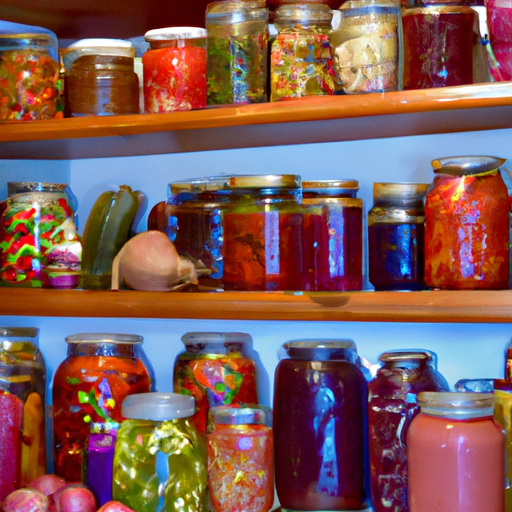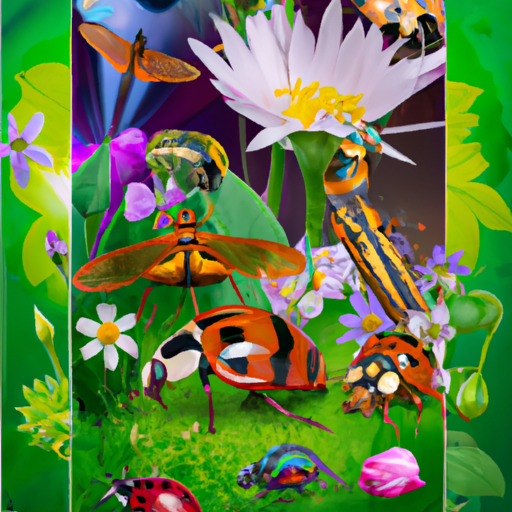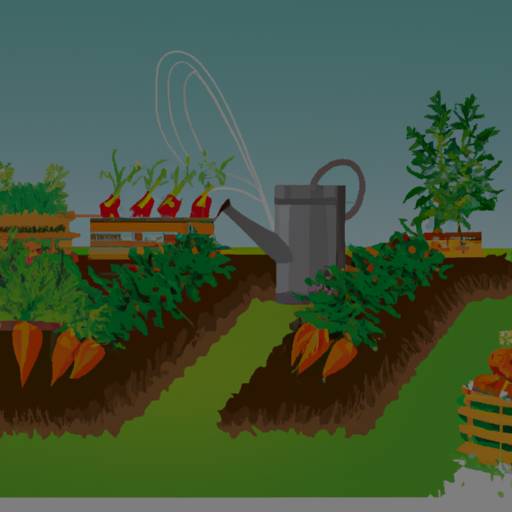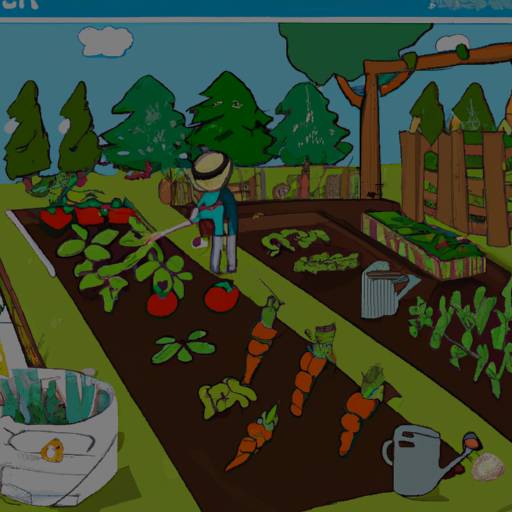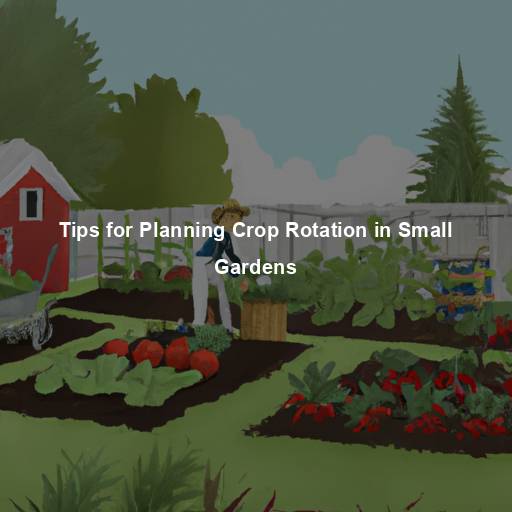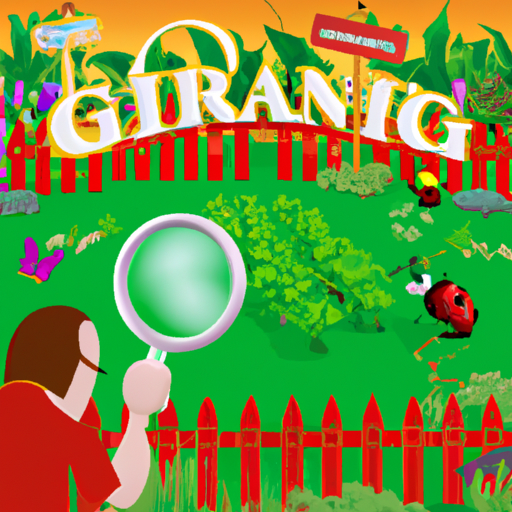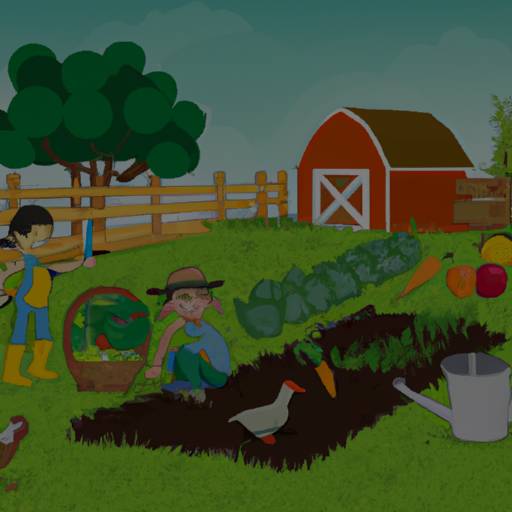Many people who grow their own organic produce struggle with the abundance of food that comes during harvest season.
While giving away or selling excess crops is one solution, canning your organic produce can have surprising benefits for both your budget and health.
Canning allows you to preserve fresh fruits and vegetables at their peak ripeness, locking in vital nutrients and flavor for later consumption.
Plus, by canning your own produce, you’ll know exactly what goes into each jar – no preservatives or artificial additives necessary.
In this article, we’ll explore why canning your organic produce is a smart choice for any home gardener looking to make the most out of their bountiful harvests.
Preserving Nutrients And Flavor
Did you know that canning your organic produce not only preserves its nutrients and flavor but also extends the shelf life of your food?
Canning techniques have come a long way since their inception, with new technology allowing for better preservation methods. By sealing fruits and vegetables in jars with high heat, enzymes are destroyed, preventing spoilage and preserving vitamins and minerals.
This means that even after months or years of storage, your canned produce will still retain its nutritional value. Plus, by using fresh ingredients from your garden or local farmers market, you can ensure that the flavor is unmatched compared to store-bought options.
So don’t let excess harvest go to waste – try out canning as a method of preserving your organic bounty!
Budget-Friendly Solution For Excess Crops
As a Master Gardener, I understand how bountiful the harvest can be at times. If you have more organic produce than you know what to do with, don’t let it go to waste!
Canning is not only an excellent way to preserve your crops for later use but also a budget-friendly solution that will save you money in the long run. With just a few supplies and some creative recipes, you can enjoy fresh-tasting fruits and vegetables year-round.
Additionally, consider joining community canning events where like-minded individuals gather to share tips and tricks on preserving their own produce while building relationships with one another. By canning excess crops together, everyone benefits from the shared knowledge and resources while reducing food waste in our communities.
Control Over Ingredients
Canning your organic produce is like having a blank canvas to paint on. With control over the ingredients, you have the power to create unique and delicious dishes that reflect your personal taste preferences.
Cooking customization is one of the greatest benefits of canning as it allows for endless possibilities when it comes to meal preparation. You can experiment with different flavors and spices, adding just the right amount to suit your palate. Taste experimentation becomes exciting as you try new combinations and elevate familiar dishes into something special.
As a Master Gardener, I highly recommend exploring this aspect of canning because it not only adds variety to your meals but also gives you complete creative freedom in the kitchen. So go ahead, take advantage of this opportunity to customize and experiment with your canned goods – who knows what amazing culinary creations await!
Reduced Food Waste
As we’ve discussed, having control over the ingredients in your food is one of the many benefits of canning organic produce. But there’s another major benefit that cannot be ignored: reduced food waste.
By canning excess fruits and vegetables from your garden, you’re able to extend their lifespan and prevent them from going bad before they can be consumed. This not only saves you money on groceries but also helps reduce the amount of food waste in landfills.
As a Master Gardener, it’s important to incorporate sustainability practices into our daily lives, including reducing waste wherever possible. Community canning events are a great way to get involved with others who share this same goal while also learning new techniques for preserving your produce.
In addition, by sharing canned goods with friends and neighbors, you’re promoting a sense of community and connectedness that comes with working together towards a common goal. So next time you have an abundance of fresh produce, consider grabbing some jars and getting started on your own sustainable journey through canning!
Health Benefits Of Canning Your Own Produce
Did you know that canning your own produce can provide numerous health benefits?
According to a study, canned fruits and vegetables retain their vitamins and minerals for up to two years, making them an excellent source of nutrition even in long term storage.
Additionally, the convenience factor cannot be ignored; having readily available canned goods at home reduces the temptation to opt for unhealthy fast food options.
As a Master Gardener, I highly recommend taking advantage of this technique to preserve your organic harvest while reaping the added benefit of improved health outcomes.
So why not give it a try and enjoy the taste of fresh produce all year round without compromising on nutritional value or convenience?
Frequently Asked Questions
What Equipment Do I Need To Start Canning My Own Produce?
If you’re thinking about canning your own produce, there are a few things to keep in mind.
First and foremost is safety. You’ll need to invest in some equipment like a water bath or pressure canner depending on what you want to preserve.
Also, make sure you select the right Mason jars for the job as not all jars are created equal.
Lastly, follow proper food handling techniques and always adhere to recommended processing times and temperatures.
With these canning safety tips in mind, you’ll be able to enjoy fresh, homegrown produce long after harvest season has passed!
How Long Does Canned Produce Last Before It Goes Bad?
When it comes to canning your own produce, one important thing to consider is the shelf life of your canned goods. Proper preservation techniques are essential for ensuring that your canned fruits and vegetables stay fresh and safe to eat for as long as possible.
Generally speaking, properly canned goods can last anywhere from 1-5 years, depending on the specific type of food being preserved and the conditions in which it is stored. To maximize shelf life, be sure to follow all instructions carefully when canning and storing your produce, including using high-quality jars and lids, sterilizing everything thoroughly before use, and keeping your storage area cool and dry at all times.
With these precautions in place, you’ll be able to enjoy your homemade preserves for months or even years after they’re made!
Can I Can Any Type Of Produce, Or Are There Certain Fruits And Vegetables That Work Best?
When it comes to canning, not all fruits and vegetables are created equal. While you technically can can any type of produce, some work better than others due to their acidity levels and texture.
For example, tomatoes make a great choice for canning because they’re naturally acidic and hold their shape well during the process. On the other hand, low-acid veggies like green beans require special canning techniques to prevent spoiling.
As a Master Gardener, I recommend doing your research before diving into canning different types of produce. Look up best practices for specific items and experiment until you find what works best for you.
Is Canning My Own Produce A Safe Process, And Are There Any Risks Involved?
Canning safety is a crucial consideration for anyone looking to preserve their own produce.
While it can be an incredibly rewarding process, there are also health concerns that need to be taken into account.
To avoid contamination and ensure the best practices when canning, it is important to follow specific guidelines when preparing your produce and sterilizing your equipment.
This includes using only high-quality ingredients, following proper sanitation procedures, and carefully monitoring the temperature throughout the entire process.
By taking these steps, you can enjoy all of the benefits of home-canned food without any unnecessary risks or health concerns.
How Does The Nutritional Value Of Canned Produce Compare To Fresh Produce?
Canning your own produce is a delicious way to preserve the nutrients of seasonal fruits and vegetables. But, does it compare to freshly picked produce?
Well, let’s dig in. The nutritional value of canned vs fresh nutrients can vary depending on how they are prepared for preservation. However, when done correctly, canned foods can retain their vitamins and minerals just as well as their fresh counterparts.
As a Master Gardener, I recommend experimenting with different recipes and techniques to find what works best for you while still preserving the quality of your organic produce.
Conclusion
In conclusion, canning your organic produce is not only a fun and rewarding experience, but it also has surprising benefits! By using simple equipment like jars, lids, and a canner pot, you can easily preserve the harvest from your garden or local farmers market.
Plus, canned produce lasts for years without losing its nutritional value! While some may be hesitant to try canning due to concerns about safety or food spoilage, following proper procedures and guidelines ensures that your canned goods are safe for consumption.
And don’t forget – by preserving your own fruits and veggies, you’re reducing waste and supporting sustainable living practices. So why not give canning a try? Your taste buds (and wallet) will thank you!
As Master Gardeners say: ‘Preserve today what you grew yesterday.’
